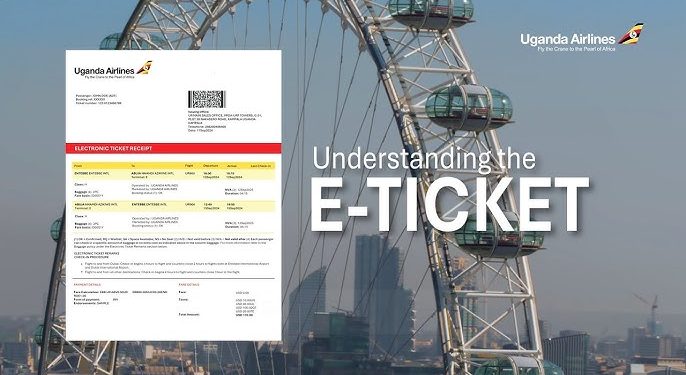Uganda Airlines’ financial crisis has taken a darker turn after auditors revealed that more than USD 27 million (about Shs 103 billion) in passenger ticket sales cannot be traced in the airline’s bank statements.
According to the Special Audit Report on Revenue Management at Uganda National Airlines Company Limited (UNACL), the missing trail stems from Passenger Name Record (PNR) transactions that were either not linked to bank deposits or lacked proper reconciliation.
The PNR is a unique identifier that should connect every ticket sold to its corresponding payment. Yet in thousands of cases, auditors found that the payments shown in ticketing systems were nowhere to be found in the airline’s bank accounts.
The report notes that this anomaly occurred across several years of operation, painting a picture of systemic breakdown in financial accountability. With PNRs forming the backbone of airline revenue tracking, their absence in the bank records leaves management unable to verify whether the money was received, diverted, or simply never collected.
In total, USD 27,171,362 worth of ticket sales were flagged as “untraceable.” Auditors warned that unless urgent recovery and reconciliation measures are undertaken, Uganda Airlines risks losing colossal sums to fraud, collusion, or outright embezzlement.
The national carrier’s management, in its response, admitted that reconciling PNR data to bank statements was a “challenge” due to limited staff and weak IT systems. They argued that manual tracking was prone to errors, but pledged to tighten controls and invest in a proper revenue accounting system.
Critics, however, say this is not mere weakness but a deliberate loophole. By failing to implement a secure PNR-to-bank reconciliation framework, insiders and agents have been able to siphon billions without immediate detection.
The audit also warns that some travel agencies may have been complicit, exploiting the gaps to hold onto customer funds that should have gone directly to the airline.
The Shs 103 billion PNR scandal adds to Uganda Airlines’ growing list of controversies, from the Shs 26 billion MixJet fuel saga to billions lost in bogus refunds for tickets already flown. Together, these findings depict a state-owned airline riddled with financial leaks at almost every stage of its operations.
Calls are growing for criminal investigations into whether these missing billions were misappropriated.
For an airline that has repeatedly sought taxpayer bailouts to stay afloat, the revelation that Shs 103 billion in ticket sales cannot be traced in its bank accounts is a devastating blow to public trust. Unless swift and decisive action is taken, Uganda Airlines risks being remembered less for flying the national flag and more for grounding it in scandal.





